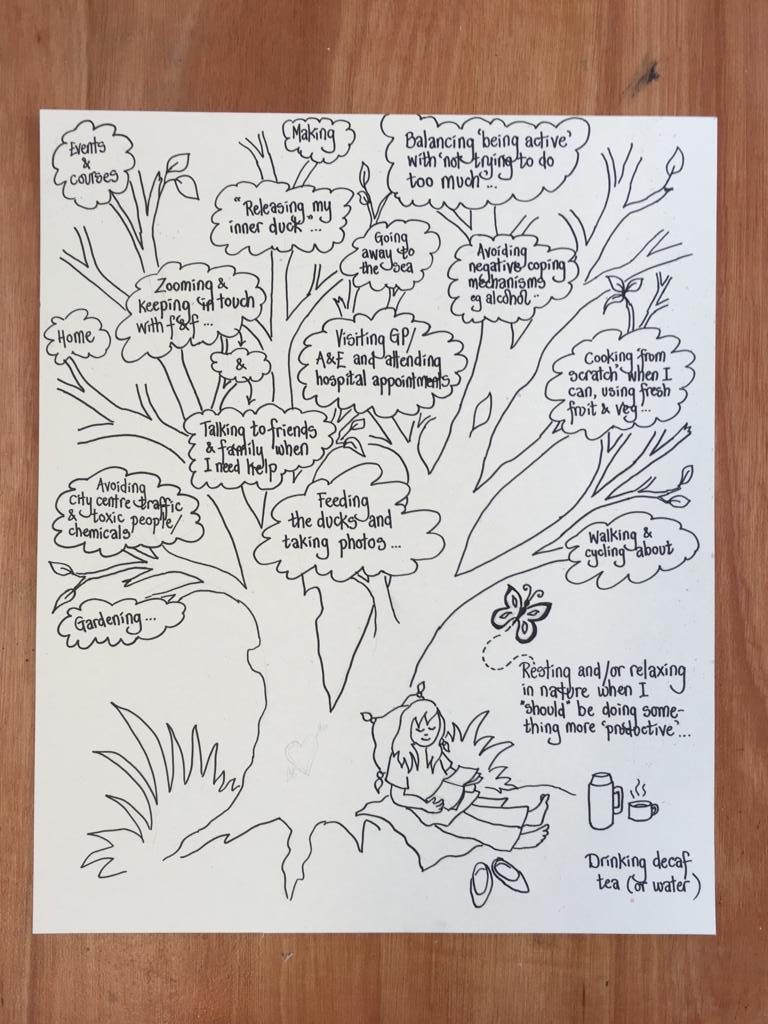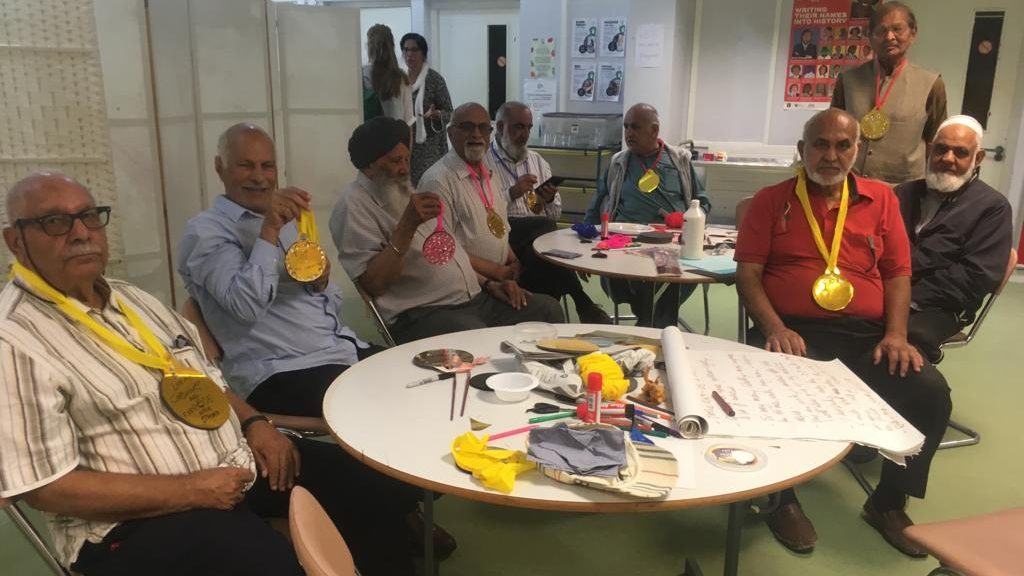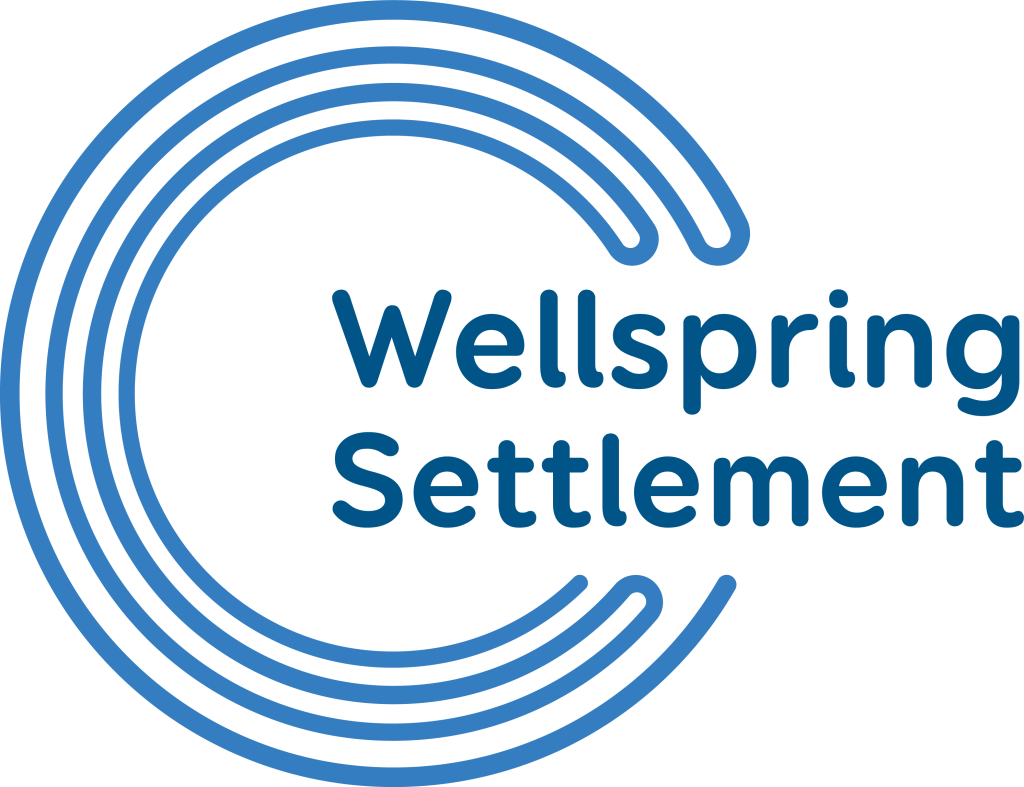Creating Health in Challenging Times
Wellspring Settlement was pleased to welcome a confidential visitor in March. Government Chief Medical Officer Chris Whitty came along in order to hear from local charities, health workers and organisations about health in Inner, Central and East Bristol in preparation for his annual report. This year the theme is Health in Cities and the report will include recommendations to improve the quality of life for people in urban areas.
This was perfect timing as our new health creation strategy is due to be launched, and our joint research report with University of Bristol was hot off the press. The health strategy will focus on working with residents to create health by preventing illness, enabling people to live to their full potential, creating healthy communities.
The report, co-written with our volunteer Researcher Team, is titled Health Inequalities in Inner City East Bristol: Community Strength in Challenging Times. It involved 63 participants who used art sessions to share their experiences of accessing healthcare and how they keep themselves well. Thank you to all of you who contributed your time and shared your perspective, it makes a great read, and you can see the report in full here.

It’s well known that Barton Hill is one of the most deprived areas of Bristol, and that the life expectancy of people in the area is significantly lower than people in wealthier areas. This gap comes from there being fewer of the building blocks of good health in place in poorer areas: good quality housing, financial stability, freedom from discrimination and access to healthcare.
These ongoing barriers to good health have only been worsened over recent years as people face extra pressures from the cost of living crisis, uncertain housing and over stretched health services, Research participants told us:: ‘People with poor mental health who are not supported well by services affect the mental health of their neighbours’: ‘I don’t want to be in survival mode all the time, it’s exhausting’.
Whilst local health services are under funded and over stretched, many residents report the impact is not feeling listened to, and that they experience difficulties in getting appointments and navigating health systems. Residents told us that they feel like they are left to manage their own physical and mental health, and community organisations like Wellspring Settlement are playing a central role in supporting them to do this.
People in Barton Hill value their health and look after it, and many people have developed their own self-care routines: ‘When I do my spiritual practice in the morning it puts me at ease, calms me and gives me energy’. For many of the people we spoke to though, negative experiences of health services including long waiting lists and inaccessible times for appointments has led to a lack of trust, feelings of powerlessness, and of not being heard ‘Medical staff don’t have the training or ability to help you so you can’t access appropriate care’, ‘Everyone is signposting and no one is providing any relational support’.
For local residents, this contrasts with the way community support groups are seen: as accessible, reliable and welcoming: ‘If I get up and think oh god another day I still come to the group’.
People who access community organisations and the groups and activities they run are able to take part in self-care activities that reduce isolation and build resilience. Residents said: ‘It’s good to be connected, I like the text reminder. It’s good to be in someone’s thoughts’: ‘I didn’t have the confidence, but once you’ve got some confidence you can do more’.
Community-based groups are seen as being run by people who listen and treat service users with respect. A resident said: ‘This group is very important – what would happen to us without it? Everyone is really good at active listening and has compassion and empathy’.
The groups, activities and opportunities to get involved that community organisations provide help to create routine and structure, and opportunities for learning and inclusion, which many people said was helpful in staying healthy: ‘I push myself to volunteer and work, even when I don’t know how I’ll cope, because I know that having a purpose in life is important for wellbeing’.
They’re also a great place to connect with the wider community, nature and spiritual heritage with safe, green spaces that can provide places to exercise, relax, connect and learn: One research participant said: ‘Gardening gets me out of the house. It’s rewarding because it’s hard work. I keep fit, meet other people at Gardening Club and get to make new friends’.
Wellspring Settlement is aiming at developing more activities alongside the community as part of our health strategy. These will create opportunities for residents to improve their health and wellbeing, and will demonstrate the power of communities to produce their own health and wellbeing outcomes – watch this space!
The findings from this research will be shared with local decision makers in the hope that the challenges faced by people trying to access health care services are addressed in a way that works for them. The research also recommends that the role of community organisations in supporting the health of residents is recognised and funded properly. The chance to take the voices of local people to a national audience is rare and we hope that the issue is also addressed at that level. One participant in the research group said ‘I’m not usually asked my opinion. It was good to be asked’, and we hope that as well as being asked, the voices of some of the people living in one of the most deprived areas in the UK are also listened to.


